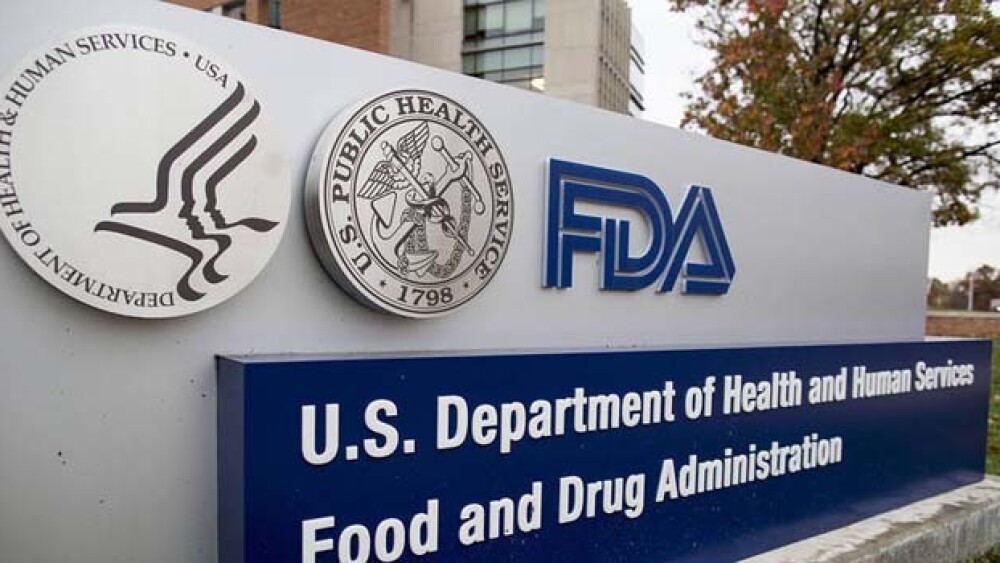The American University Washington College of Law and the Food and Drug Law Institute hosted a conference late last week. One of the highlights was a plenary session that featured former commissioners of the U.S. Food and Drug Administration (FDA).
The American University Washington College of Law and the Food & Drug Law Institute hosted a conference late last week. One of the highlights was a plenary session that featured former commissioners of the U.S. Food and Drug Administration (FDA). The former commissioners were Robert Califf, Margaret Hamburg, David Kessler and Andrew von Eschenbach.
They were questioned by Lewis Grossman, professor of law at the American University.
Grossman covered many topics, including constitutional rights, transparency, and whether to split out the food aspects of the FDA’s regulatory mission into a separate entity. One of the topics that grew in intensity was whether the agency could be split off from its parent agency, the U.S. Department of Health and Human Services (HHS).
According to Regulatory Focus, “Hamburg noted three of the former commissioners had already gone on the record saying they think FDA should be an independent agency. Acknowledging certain limitations exist that would likely keep their arguments from being actualized, all four agreed this would be a better fit.”
This is not a new concept. In 2016, six former FDA commissioners said the same thing at the Aspen Ideas Festival. The idea then was to make the FDA independent and potentially give it a White House cabinet seat.
STAT noted then, “the FDA is part of the U.S. Department of Health and Human Services, which adds a big layer of officialdom between the agency and the White House. And in a legislative holdover, the FDA budget is overseen by House and Senate agriculture appropriations committees, which may not always be familiar with matters surrounding cutting-edge medical developments.”
Both then and now, the commissioners noted that politics can get in the way of regulatory decisions. One example given two years ago was in December 2011, former HHS Secretary Kathleen Sebelius overruled the agency, refusing to allow an emergency contraceptive to be sold over the counter to young teenagers. STAT noted, “This was the first time the HHS took such a step, but it was politically expedient because it allowed the Obama administration to avoid a contentious battle over birth control during a presidential election season.”
At this latest meeting, Hamburg expressed the opinion that there was a need to minimize political pressure so FDA can operate separately from HHS. It would also allow FDA to use “time and resources in a much more efficient way.”
Regulatory Focus writes, “An example of political pressure on FDA, according to Kessler, relates to the First Amendment to the United States Constitution being ‘used as a weapon against the agency over the last several decades.’ To address this issue, Kessler argued work is needed to address the degree of protection on regulated medical products. Striking the right balance would allow FDA to focus on its responsibilities and commitments to the public in ensuring the safety and effectiveness of drugs and devices, he said.”
Califf claims he was never into the “political tradeoffs” he made during his tenure as commissioner. It’s an interesting statement coming from Califf, who oversaw the agency in 2016 during the FDA’s dramatic, controversial—and political—approval of Sarepta Therapeutics’ Exondys 51 for Duchenne Muscular Dystrophy (DMD).
The politics were not only internal. There were severe disagreements between the agency’s acting chief scientist, Luciana Borio, Ellis Unger, director of the office or drug evaluation, and Janet Woodcock, director of the Center for Drug Evaluation and Research (CDER).
Both Borio and Unger were opposed to the approval, arguing there was not substantial evidence of the drug’s effectiveness. Woodcock overruled her staff, pushing it through. The final decision went to Califf, who apparently had similar reservations as Borio and Unger, but ultimately sided with Woodcock.
But along the way, 109 members of Congress sent a letter to the FDA urging it to accelerate approval of a DMD drug, any DMD drug. In March of that year, 36 DMD experts signed a letter to the FDA urging it to approve the drug. A public meeting in April 2016 lasted 12 hours and had 52 public commentators, including families and DMD children.
At last week’s meeting, Eschenbach, as reported by Regulatory Focus, “argued that the job of an FDA commissioner is really about working to know, understand and help meet the needs of the industries it regulates and the patients it serves. All other influencers, including political and trade policies, should not play into FDA’s central mission.”





